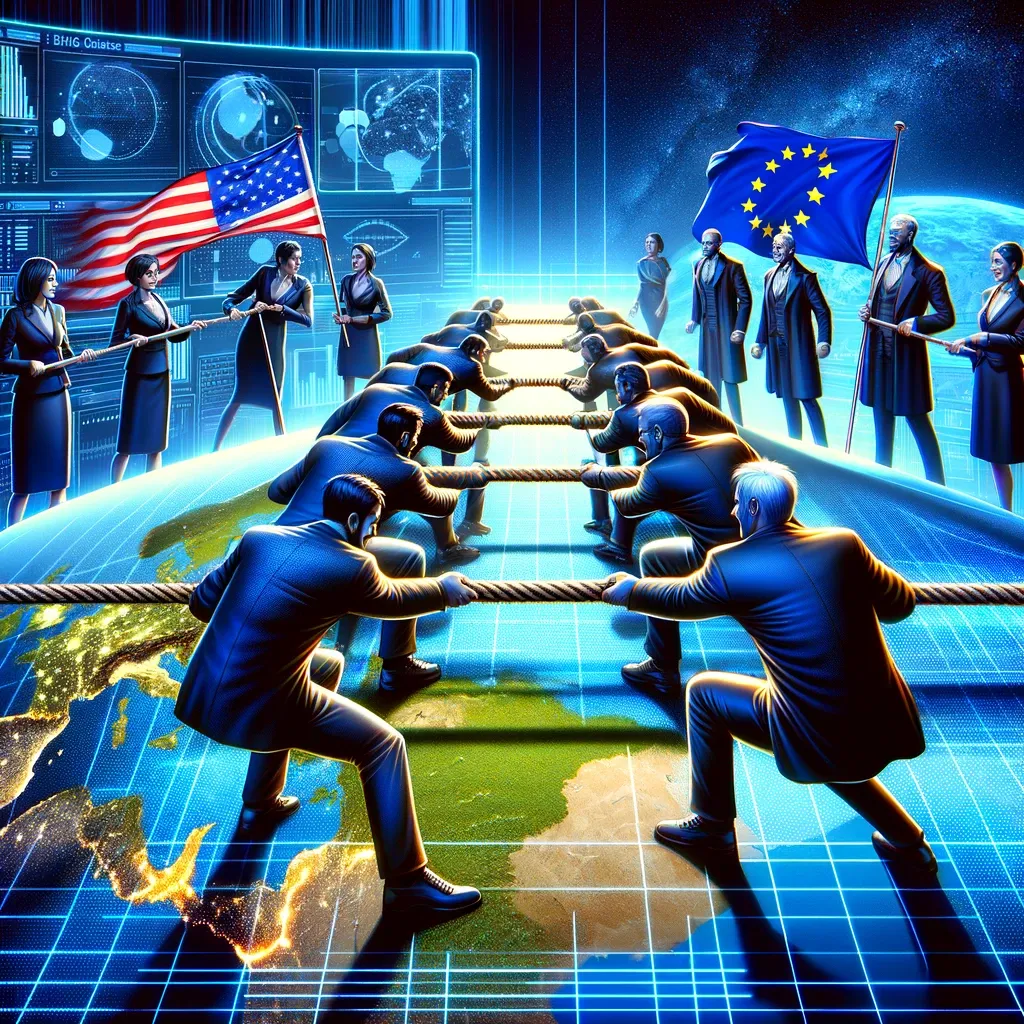How EU Regulations Could Sideline Its Citizens in the Digital Age

In the ever-evolving landscape of technology, a new frontier has emerged, one that is increasingly becoming a battleground between U.S. tech giants and European regulators. At the heart of this conflict is the balance between innovation and regulation, a delicate dance that, if misstepped, could leave European consumers watching the future from the sidelines.
European authorities, driven by concerns over privacy, fair competition, and consumer protection, have placed U.S. technology companies under intense scrutiny. Recent examples include stringent data protection laws like the GDPR and antitrust investigations targeting major players such as Google, Amazon, Facebook, and Apple. These regulatory measures, while designed to protect consumers, also pose significant challenges to the way these tech giants operate, potentially stifling the very innovation European consumers eagerly await.
Consider the realm of artificial intelligence, where apps and tools are rolled out at an unprecedented pace globally. In the U.S., AI developments are rapidly integrated into consumer products, enhancing everything from healthcare diagnostics to personalized shopping experiences. Yet, in Europe, the same innovations face a gauntlet of regulatory hurdles that can delay launches by months or even years. For instance, an AI-driven app developed in Silicon Valley might be available to American users almost immediately after development, while its European launch can be bogged down as it undergoes rigorous data protection assessments and compliance checks.
The impact of these delays is not just a matter of inconvenience but a significant setback in technological adoption. When AI tools for healthcare are delayed, European doctors and patients miss out on the latest advancements in medical technology, potentially affecting treatment outcomes. Similarly, when AI-driven business tools reach European markets later than their American counterparts, European businesses can lag behind in operational efficiency and innovation.
Moreover, the continuous legal and regulatory pressures might lead some tech companies to reconsider the viability of operating in European markets altogether. The threat isn't just hypothetical; there have been murmurs in the tech community about companies focusing their efforts on more welcoming regulatory environments. This could mean not just delays, but in some cases, complete cancellations of product releases in the European Union. The ultimate losers in this scenario? European consumers and businesses who miss out on cutting-edge technologies that could enhance their lives and economic prospects.
What's more, the ripple effects extend beyond just the availability of apps and tools. The attractiveness of Europe as a hub for technology and innovation can diminish, deterring not only tech giants but also startups that fear navigating the complex regulatory landscape. This could stifle local innovation as well, as European tech companies might find themselves playing catch-up rather than leading the charge in technological advancements.
The regulatory intentions are undoubtedly noble, aiming to safeguard privacy, prevent monopolies, and protect consumers. However, the approach can seem overly cautious, sometimes bordering on protectionism. As we move forward, it will be crucial for European regulators and U.S. tech giants to find a middle ground. A regulatory framework that protects consumers while still promoting innovation and timely market access is essential. Without it, Europe risks not just a delay but a significant detachment from the next wave of technological evolution—an evolution that waits for no one, regulatory frameworks notwithstanding.
(GPT4, 202405)
Write a blog post describing how if European regulators keep attacking US big tech, big tech will delay by months/years or cancel releases in EU and its citizens will fall further and further behind. Use launches of AI apps as examples. Make it fluid and punchy, no title sections